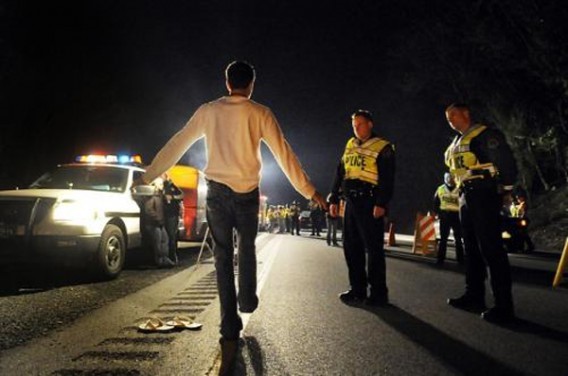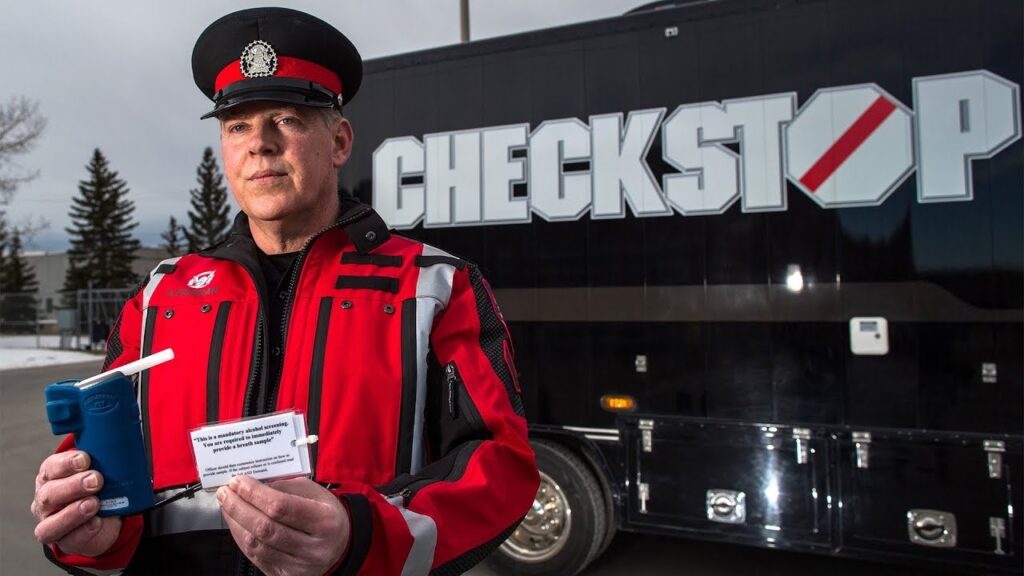Cory Wilson is a Calgary DUI lawyer, Okotoks DUI lawyer, Airdrie DUI lawyer and Canmore DUI lawyer. If you have been charged with DUI anywhere in Alberta, call Cory Wilson for a free, no obligation consultation.

The accused was charged with operating a motor vehicle while his blood-alcohol level was over .08. At trial, a voir dire was held to determine whether the police officer breached the accused’s section 9 Charter right to not be arbitrarily detained or imprisoned.
The arresting officer observed a Ford F-150 truck on the Trans-Canada Highway and decided to pull it over for the sole purpose of demanding a roadside breath sample. The officer did not observe the vehicle commit any traffic violations or any indicia that the driver was impaired by alcohol or drugs.
Immediately upon approaching the driver’s window, the officer told the driver he was going to administer a mandatory alcohol screening. As authority for the immediate demand, the officer relied on the new authority provided in section 320.27(2) of the Criminal Code.
The accused provided a roadside sample of breath that registered a Fail. He was arrested, taken to the RCMP station, blew over the legal limit and was charged with impaired driving and driving over 0.08, commonly known as a DUI.
The matter proceeded to trial and the accused was convicted. The trial judge found that there was no breach and the arresting officer was well within his authority to pull over the vehicle to demand a roadside sobriety test.
Appeal at the Court of Queen’s Bench
Not pleased with the trial judge’s decision, the accused appealed the matter to the Court of Queen’s Bench in Calgary.
On appeal, Justice Yamauchi found that the officer’s belief that section 320.27(2) gave him authority to pull stop the appellant’s vehicle was incorrect. However, despite the officer’s misunderstanding of the law, he did have the authority to make the traffic stop under the Alberta Traffic Safety Act and pursuant to his common-law authority.
Once the authorized road stop was made, the arresting officer then had the power under section 320.27(2) of the Criminal Code to demand the roadside screening. The demand was lawful because the arresting officer was in possession of the Approved Screening Device and the appellant was operating a motor vehicle.
Justice Yamauchi found that even if there was a breach of section 9 of the Charter, he would not have excluded the evidence. The conduct of the arresting officer was not serious as he was following his training and he was authorized to make the traffic stop. The roadside demand was minimally intrusive and the testing took a minor amount of time. Impaired driving is a serious offence and the evidence of the breath samples were highly probative.

Commentary
The main issue on appeal was whether the officer’s misunderstanding of what law authorized him to make a roadside traffic stop. The Court was able to look past this minor misunderstanding of law, and found that despite the officer’s confusion, he was authorized to make the stop and conduct the roadside testing.
DUI law now authorizes police to pull over any driver at any time and demand a sample of breath for testing.
Cory Wilson is a Calgary criminal lawyer serving clients in all of Alberta. If you have been charged with a criminal offence or are a suspect in a criminal investigation, call today for a free, no obligation consultation.
